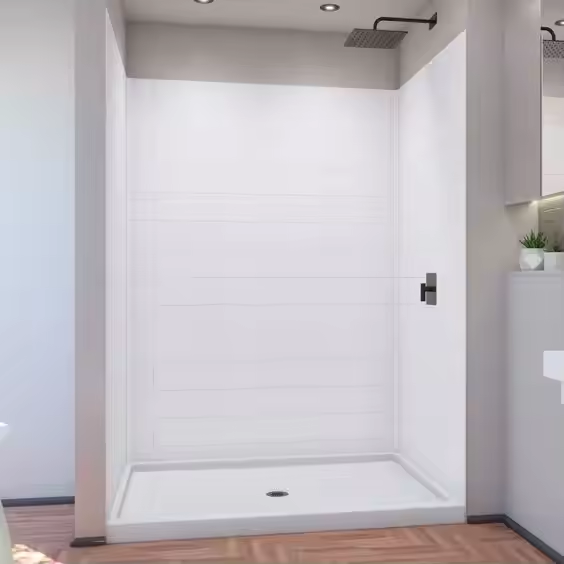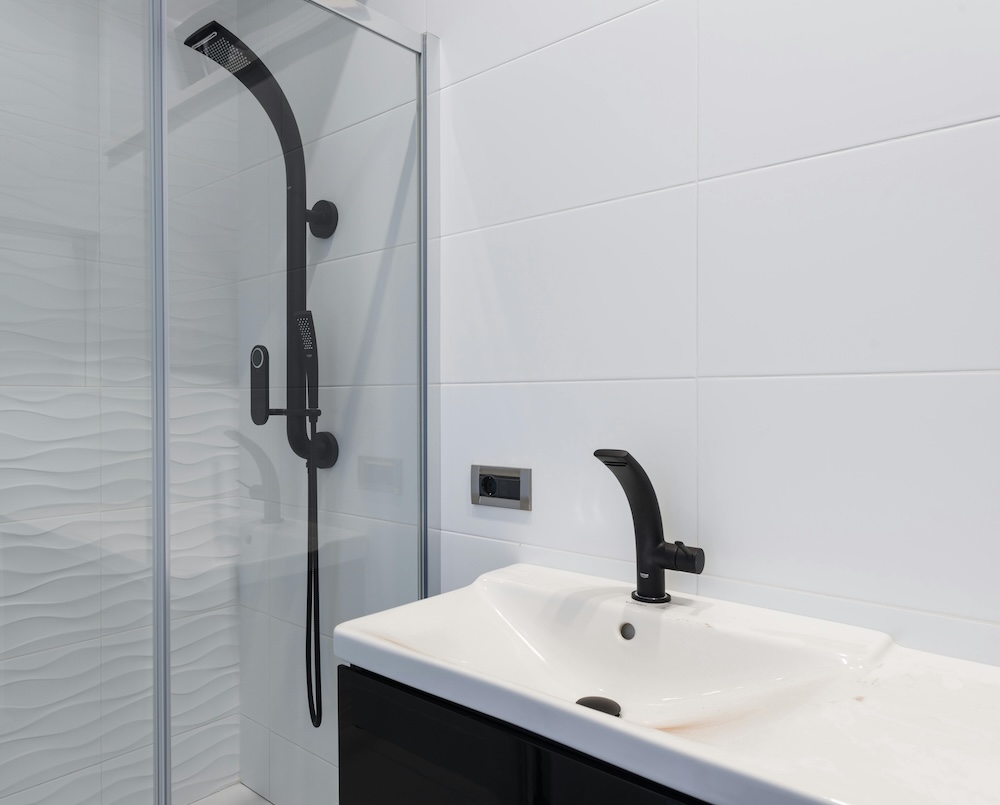When it comes to renovating your bathroom, one of the biggest decisions you’ll face is choosing the right material for your shower walls. While tiles have long been the go-to option, shower wall panels are quickly gaining popularity as an alternative. But are shower wall panels better than tiles? In this blog, we’ll explore the pros and cons of both options to help you make an informed decision based on your needs, budget, and style preferences.
What Are Shower Wall Panels?
Shower wall panels are large, pre-made sheets of material designed to cover the walls of your shower. These panels are typically made from waterproof materials such as acrylic, PVC, or fiberglass, and they come in a variety of styles and finishes. Unlike traditional tiles, which are applied individually, wall panels are usually installed as large pieces that cover the entire surface at once.
The Pros of Shower Wall Panels
- Quick and Easy Installation
One of the biggest advantages of shower wall panels over tiles is the installation process. Shower panels are much easier and faster to install because they come in large sheets that can be cut to fit your space. Unlike tiles, which require careful alignment, grout application, and sealing, wall panels simply need to be affixed to the wall with adhesive or screws.
For homeowners looking for a fast renovation project, shower wall panels are a clear winner. The time savings are significant, especially compared to the labor-intensive process of tiling and grouting.
- Waterproof and Low Maintenance
Shower wall panels are generally made from completely waterproof materials like acrylic, PVC, or fiberglass. This means there’s no need for grout, which can absorb water over time and lead to mold and mildew growth. Panels are also non-porous, so they don’t retain moisture like grout lines or porous tiles.
Wall panels require very little maintenance. You won’t need to worry about regrouting or sealing the surfaces, which is often required with tiled showers to prevent water damage. Cleaning is also much simpler, as you only need to wipe down the surface.
- Seamless Appearance
Another advantage of shower wall panels is their seamless look. Since the panels are large sheets, there are no grout lines to deal with. This creates a clean, modern, and sleek appearance that can make your shower feel more spacious. Many wall panels also come in a variety of textures and finishes, including designs that mimic the look of tiles, stone, or even wood.
If you prefer a contemporary, streamlined look without the hassle of grout, shower wall panels might be the way to go.
- Durability
Shower wall panels are designed to be highly durable. They are resistant to scratches, chips, and stains, making them ideal for high-moisture environments like showers. Many panels are reinforced with a sturdy backing material, which can enhance their longevity and resistance to damage.
Wall panels tend to have a longer lifespan than tiles, especially when you consider that they don’t require the upkeep associated with grout and tile wear.
The Cons of Shower Wall Panels
- Limited Design Options
While shower wall panels come in various colors, textures, and finishes, they may not offer as much design flexibility as tiles. Tiles come in an almost infinite variety of shapes, sizes, and colors, allowing for more intricate and customized patterns. If you’re looking to create a unique, one-of-a-kind design, tiles may be the better choice.
- Potential for Scratches and Discoloration
Although shower wall panels are durable, they can be susceptible to scratches and discoloration, especially if you use abrasive cleaning tools or harsh chemicals. While most panels are designed to be scratch-resistant, they are not immune to damage. Over time, the panels may begin to show signs of wear, particularly if they are not properly cared for.
- Installation Challenges in Complex Spaces
While shower wall panels are easier and faster to install than tiles in a standard shower, they can be more challenging in spaces with intricate designs, such as custom or unusually shaped showers. Cutting and fitting the panels around corners, fixtures, and other obstacles may require special tools and expertise, potentially making the installation more difficult.
The Pros of Tiles
- Design Flexibility
Tiles offer unparalleled design flexibility. Whether you’re aiming for a classic, traditional look or something modern and eclectic, there are endless options when it comes to tile shape, size, color, and pattern. You can create intricate designs with mosaic tiles, add bold accents, or choose large-format tiles for a minimalist look.
Tiles allow for far more creativity and personalization, which is a huge draw for those who want a truly unique bathroom.
- Long-Lasting and Timeless
Tiles have been a staple in bathroom design for centuries, and their timeless appeal is part of their charm. High-quality ceramic, porcelain, or stone tiles are incredibly durable and can last for decades if properly maintained. Even if grout lines require occasional maintenance, tiles themselves can stand up to years of use.
- Variety of Materials
Tiles come in a wide range of materials, from ceramic and porcelain to natural stone, glass, and even metal. This variety allows you to choose the material that best fits your budget and aesthetic preferences. If you prefer the look of natural stone or the sleekness of glass tiles, tiles offer more material options than wall panels.
- Increased Home Value
A well-tiled shower can increase the value of your home. If you’re planning to sell your home in the near future, high-quality tiles can be a selling point for potential buyers. Tiles, especially in neutral tones, tend to appeal to a wide range of tastes and can add a luxurious feel to your bathroom.
The Cons of Tiles
- Labor-Intensive Installation
Tile installation is a complex and time-consuming process that requires skill and precision. Laying each tile, applying grout, and sealing the tiles can take several days, depending on the size of the shower. For many homeowners, the process of tiling is not only expensive but also stressful, requiring professional help.
- Grout Maintenance
Tiles require grout to hold them in place, which can be a maintenance nightmare. Grout can become stained, cracked, or moldy over time, requiring regular cleaning and sealing. This can be particularly problematic in wet areas like the shower where moisture can seep into the grout lines.
Grout lines can be a headache to maintain, especially in high-moisture environments like showers.
Conclusion: Which Is Better?
Whether shower wall panels or tiles are the better option depends on your priorities. If you want a quick, easy, and low-maintenance installation, shower wall panels may be the best choice. They are waterproof, durable, and give your shower a clean, modern look. On the other hand, if you value design flexibility, timeless appeal, and don’t mind the extra effort involved in installation and maintenance, tiles might be a better fit for your bathroom.
In the end, choosing between shower wall panels and tiles comes down to your budget, design preferences, and how much time you’re willing to invest in installation and maintenance. If it’s me personally, I will choose tiles undoubtedly. Consider your priorities carefully, and you’ll be sure to find the perfect option for your shower renovation.


